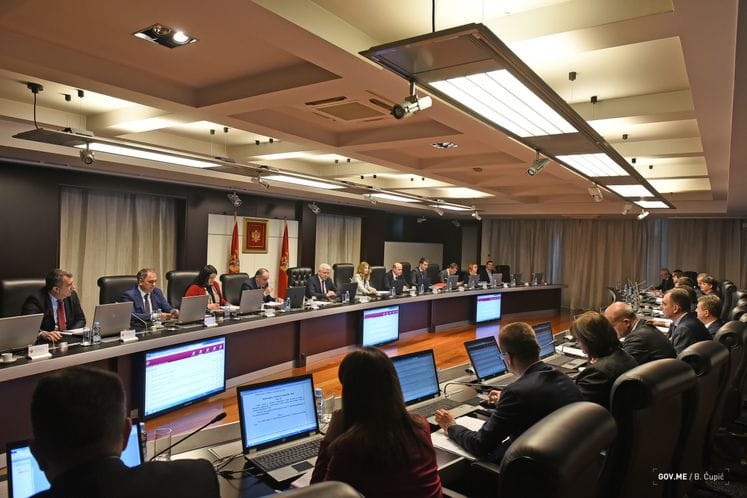- Government of Montenegro
Montenegro's Cabinet session
Please note: The page below represents the archived content relating to the previous Government of Montenegro. Some of the information might be inaccurate or outdated.
Archive
Montenegro's Cabinet session

Published on: Feb 23, 2017 • 11:26 PM Author: PR Service
Podgorica, Montenegro (22 February 2017) – Earlier today, the Montenegrin Cabinet held its 14th session, chaired by Prime Minister Duško Marković.
In line with the country’s economic policy, reflected in higher economic growth, new jobs creation, increasing investment and exports, higher standard of living, while increasing competitiveness of the economy, the Cabinet passed the Decision on the Privatisation Plan for 2017. The document sets out the main objectives, methods and principles of privatisation, including a list of companies and percentage of share capital for their privatisation. It was concluded that the privatisation in 2017 will be based on methods and principles adjusted to the free market, and that removing barriers for new investments would be a top priority. By the same token, a form of encouraging investment, inter alia, is the privatisation of the remaining non-privatised companies, as well as the valorisation of tourism locations. The main objective of privatisation is to increase competitiveness and efficiency of companies, encouraging foreign investments and entrepreneurship in all areas and boosting employment.
The Cabinet also passed the Public announcemnt for participation in the process for awarding funds to foster direct investments in order to support job creation.
The meeting passed the Draft Schengen National Plan and tasked the Ministry of the Interior, to set up, within 30 days, an interdepartmental working body to monitor its implementation.
The document, which is one of the key programme documents in preparation for the accession of Montenegro to the European Union defines in all the activities pertaining to the harmonisation of the legal framework, infrastructure and information and communication systems, training, personnel, comprehensive integrated border management, establishment of adequate asylum system, as well as the security and protection of personal data. Implementation of the Schengen National Plan means not only fulfilling the conditions for accession of Montenegro to the European Union and the Schengen area, but is also a development plan for integrated border management in line with modern European standards, which will primarily contribute to a better security of Montenegro.
The Cabinet also passed the Strategy for Integrated Migration Management in Montenegro for the period 2017-2020. The aim of the strategy is to establish a society with an efficient system and recognisable results in the field of integrated management of migration, which will contribute to regional and overall stability, in compliance with the rules and standards of the EU. It was also noted that Montenegro is committed to developing and improving the legal framework, institutions and administrative capacity, as well as cooperation with other countries and international organizations.
At today's meeting, the Cabinet discussed the implementation of the Agreement on payment arrangements of final rulings of the Commercial Court in Podgorica, signed between the authorised representatives of the Airports of Montenegro, as a judgment creditor, and Montenegro Airlines, as the judgment debtor, and approved the initiative to delay the execution of the received obligations under the Agreement on the method of payment of claims for a period of 12 months.
Related articles:
Parliament to decide on disposal of state property Mar 28, 2025
Press release from the Office of the Prime Minister Mar 28, 2025
Press release from the 74th Cabinet session Mar 27, 2025
Is this page useful?
